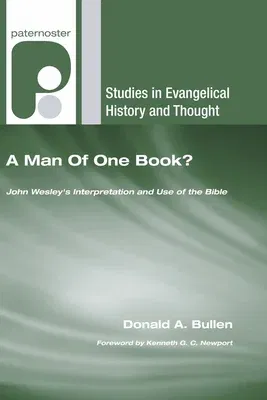John Wesley claimed to be a man of one book, and early Wesley
scholarship accepted uncritically that the Bible was his supreme
authority. In the late twentieth century, American Wesley scholars
discussed what has been termed the Wesley Quadrilateral (the authority
of the Bible, tradition, reason, and experience), and this to some
extent helps explain the method by which Wesley read and interpreted the
Bible. However, modern biblical reader-response criticism has drawn
attention to the central role of the reader in his/her interpretation of
scriptural texts. Donald Bullen argues that Wesley came to the Bible as
a reader with the presuppositions of an eighteenth-century High Church,
Arminian Anglican, in which tradition he had grown up. He then found his
beliefs confirmed in the scriptural text. Claiming to base all his
beliefs on the Bible, he found himself in controversy with others who
made similar claims but came to different conclusions. The implications
of this are explored in depth. ""This exciting book explains how John
Wesley read the Bible as a philosophically informed High Church,
Arminian Anglican and how he was thereby able to reconcile scripture,
reason, and tradition in a way which remains exemplary and important.""
--R. John Elford, Liverpool Hope University ""This is an important
contribution to two disciplines--biblical scholarship and Wesley
studies--and I am delighted to see it published."" --Kenneth G. C.
Newport, from the Foreword ""Dr. Bullen has produced a comprehensive and
illuminating study of John Wesley's doctrine and use of the Bible. He
makes clear that, though for Wesley Scripture was always the supreme
authority for faith and life, he also made creative use of tradition,
reason, and personal experience as offering contemporary, as well as
historical, understanding for Christian Bible study."" --John A. Newton,
CBE, Wesley Historical Society Donald A. Bullen is a Methodist minister,
ordained in 1959. he is interested in the origins of the Methodist
Church. Following retirement in 1997 he undertook serious academic
research, including his doctoral thesis on John Wesley and the way in
which he interpreted and read the Bible. He is firmly committed to the
ecumenical movement.


